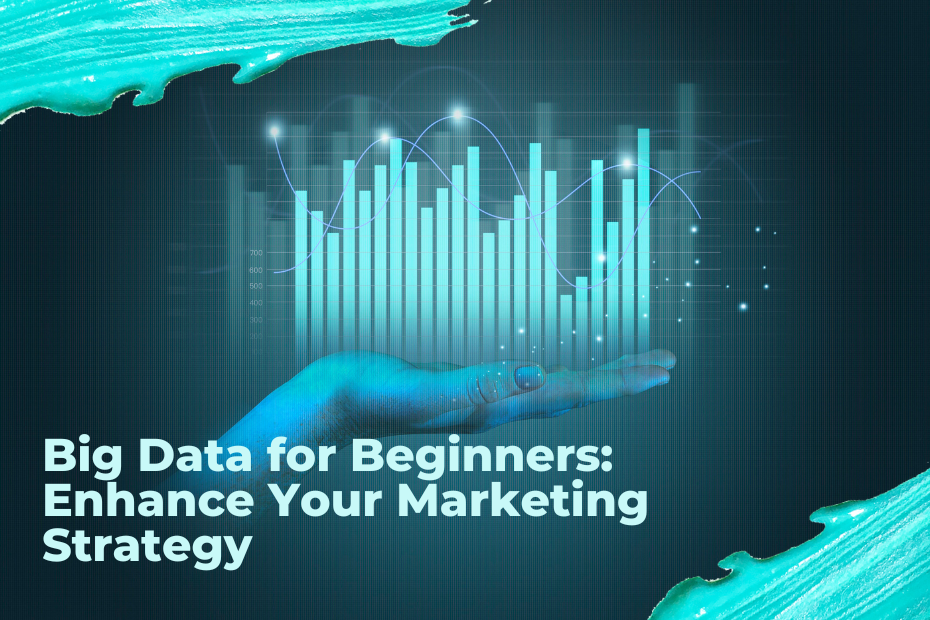The business environment is changing rapidly. To remain competitive, companies must leverage the potential of data. One term that you’ve likely heard in this context is “Big Data.” But, what exactly is Big Data, and how can it transform your marketing strategy? In this article, we’ll explore the fundamentals of Big Data and its impact on modern marketing.
What is Big Data?
Big Data encompasses the extensive and intricate datasets that organizations gather from diverse sources. These datasets are characterized by three main attributes, often referred to as the 3 V’s of Big Data:
Volume
Volume relates to the sheer size of the data generated daily. In the digital age, businesses accumulate massive amounts of information from various channels, including social media, websites, customer interactions, and more. The volume of data is so immense that traditional data processing tools are often inadequate for handling it.
Velocity
Velocity pertains to the speed at which data is generated and analyzed. With the advent of real-time data sources like social media and IoT devices, information flows into organizations at an unprecedented speed. Marketers need to process and interpret this data quickly to make informed decisions.
Variety
Variety encompasses the diverse forms of data that organizations collect. This includes structured data (e.g., numbers and dates) and unstructured data (e.g., text, images, and videos). Big Data encompasses both types, making it essential for businesses to develop versatile analytical tools.
Data Warehousing vs. Data Lakes
To harness the potential of Big Data effectively, it’s crucial to understand the difference between data warehousing and data lakes:
Data Warehousing
Data warehousing involves the storage of structured data in a centralized repository. It’s akin to organizing data neatly on shelves in a library. This structured approach makes it easier to access and analyze specific information, making it valuable for structured queries and reporting. However, it may not be ideal for handling unstructured data or handling data at the speed of Big Data.
Data Lakes
Data lakes, on the other hand, are repositories that can store both structured and unstructured data in their raw form. Think of them as a vast reservoir where data flows in without extensive organization. While this approach allows for greater flexibility and the ability to work with diverse data types, it requires advanced tools and strategies to derive valuable insights.
How Big Data Can Enhance Your Marketing Strategy
Now that we’ve covered the basics of Big Data, let’s explore how it can revolutionize your marketing efforts:
1. Enhanced Customer Insights
Big Data enables businesses to gain deeper insights into their customers. By analyzing customer behavior, preferences, and feedback from various sources, you can create highly targeted marketing campaigns. Personalization is crucial for attracting and retaining customers in today’s fiercely competitive environment.
2. Predictive Analytics
Big Data empowers marketers with predictive analytics tools. These tools use historical data to forecast future trends and customer behaviors. By identifying emerging patterns, you can adjust your marketing strategies proactively, ensuring you stay ahead of the competition.
3. Real-time Decision Making
With the velocity aspect of Big Data, you can make real-time decisions. Monitor social media trends, website traffic, and customer feedback as they happen. This agility allows you to respond promptly to changing market conditions, customer sentiments, and emerging opportunities.
4. Improved Product Development
Big Data can also guide product development. Analyzing customer feedback and market trends helps you refine your existing products and create new ones that meet the evolving needs of your target audience.
5. Cost Optimization
By analyzing data related to your marketing campaigns, you can identify inefficiencies and areas where you can reduce costs without compromising results. This optimization can significantly impact your bottom line.
In conclusion, Big Data is a powerful tool that can transform your marketing strategy. By harnessing the 3 V’s of Big Data, understanding the difference between data warehousing and data lakes, and leveraging the capabilities of Big Data, you can gain a competitive edge in the digital marketplace.
If you’re looking for expert assistance to kickstart your Marketing Automation, rely on Sootra Consulting for guidance. Simply reach out or provide us with your business details or email needs at support@sootraconsulting.com. Let’s start a conversation!
Moreover, if you’re interested in exploring our other exceptional blogs, click here.
